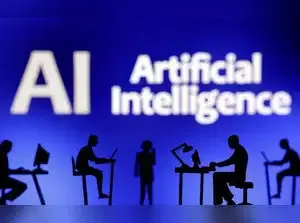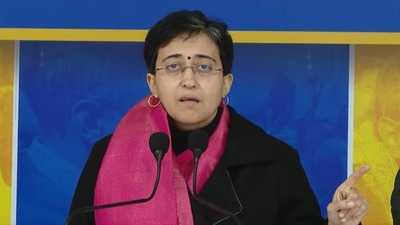Indians are the least likely to wish they had access to an AI coach as an employer benefit is the most striking insight from the 2025 Educational Testing Service (ETS) Human Progress Report released on Tuesday.
The seemingly counter intuitive response of Indian employees raises several questions. Is it scepticism, a cultural preference for human guidance, or a sign of deeper shifts in workplace expectations?
The report–based on responses from 18,000 individuals across 18 countries–showed the Human Progress Index for India has risen, improving the most amongst all countries, signalling improved access to education, career mobility, and skill development.
However, the gap between employer demands and educational systems remains a concern. While skill-based credentials gain momentum globally, the report finds that traditional learning and career paths still hold strong in India.
Amit Sevak, CEO of ETS, points to a deeply ingrained cultural factor that explains why AI-driven mentorship is not yet a priority for Indian professionals–human educators, not digital interfaces, have long delivered personalised learning. “In India, the idea of having a tutor has been around for generations. My grandfather was a teacher in Ahmedabad, and after school hours, he was always tutoring kids. AI coaching is still a new concept, and adoption will take time.”
As AI-driven learning tools gain traction worldwide, a different concern looms large in India—the Fear of Being Obsolete (FOBO).
Sevak notes that “over two-thirds of Gen Z respondents fear that their skills will become irrelevant due to AI and automation.”
While upskilling remains a priority, AI-based coaching isn’t seen as the go-to solution—Indians are still navigating how best to future-proof their careers in a rapidly changing job market.
This concern is not unfounded. The report finds that 65% of Gen Z workers globally worry about staying relevant in the face of rapid technological change.
Their fears are validated by industry projections: by 2030, digital skill wallets and verified resumes will dominate hiring, reinforcing the need for continuous skill development.
As skill-based hiring gains traction, India is uniquely positioned to benefit.
According to Sevak, with a workforce of over 140 million individuals aged 18-25, credentials are becoming essential for employability. He is optimistic, he said, “Employers will benefit because they’ll have more data on the competencies of individuals. Skill-based certifications will make the invisible visible, ensuring that young professionals are job-ready.”
This shift from degree-based hiring to skills-first recruitment aligns with global trends.
The report finds that 86% of respondents believe certifying their skills improves their chances of securing better jobs and advancing their careers. It also highlights that more than 80% of people are already actively working on future-proofing their careers, whether through formal education, certifications, or employer-sponsored upskilling initiatives.
The dual importance of technical and human skills is also becoming apparent.
Nearly two-thirds of respondents seek credentials in AI literacy, problem-solving, creativity, and communication—signalling a clear demand for both technical expertise and soft skills.
Another key takeaway from the report is that credentials—what it calls "Evidential Currency"—are becoming essential for career advancement. While university degrees remain valuable, employees and employers alike recognise that verified skills hold increasing weight in hiring decisions. The findings indicate that skill-based credentials are not just an alternative to traditional education but a critical supplement, offering a clearer picture of an individual’s abilities.
Sevak emphasises the need for education systems to evolve accordingly, he said, “The architecture of Indian higher education is still based on the conventional model and is evolving with the implementation of the NEP. But the world of work has changed, and so must our approach to learning. Integrating skill-based certifications into education will make students more employable and better prepared for the workforce.”
Budget with ET
Tax calculator
The report–based on responses from 18,000 individuals across 18 countries–showed the Human Progress Index for India has risen, improving the most amongst all countries, signalling improved access to education, career mobility, and skill development.
However, the gap between employer demands and educational systems remains a concern. While skill-based credentials gain momentum globally, the report finds that traditional learning and career paths still hold strong in India.
Amit Sevak, CEO of ETS, points to a deeply ingrained cultural factor that explains why AI-driven mentorship is not yet a priority for Indian professionals–human educators, not digital interfaces, have long delivered personalised learning. “In India, the idea of having a tutor has been around for generations. My grandfather was a teacher in Ahmedabad, and after school hours, he was always tutoring kids. AI coaching is still a new concept, and adoption will take time.”
As AI-driven learning tools gain traction worldwide, a different concern looms large in India—the Fear of Being Obsolete (FOBO).
Sevak notes that “over two-thirds of Gen Z respondents fear that their skills will become irrelevant due to AI and automation.”
While upskilling remains a priority, AI-based coaching isn’t seen as the go-to solution—Indians are still navigating how best to future-proof their careers in a rapidly changing job market.
This concern is not unfounded. The report finds that 65% of Gen Z workers globally worry about staying relevant in the face of rapid technological change.
Their fears are validated by industry projections: by 2030, digital skill wallets and verified resumes will dominate hiring, reinforcing the need for continuous skill development.
As skill-based hiring gains traction, India is uniquely positioned to benefit.
According to Sevak, with a workforce of over 140 million individuals aged 18-25, credentials are becoming essential for employability. He is optimistic, he said, “Employers will benefit because they’ll have more data on the competencies of individuals. Skill-based certifications will make the invisible visible, ensuring that young professionals are job-ready.”
This shift from degree-based hiring to skills-first recruitment aligns with global trends.
The report finds that 86% of respondents believe certifying their skills improves their chances of securing better jobs and advancing their careers. It also highlights that more than 80% of people are already actively working on future-proofing their careers, whether through formal education, certifications, or employer-sponsored upskilling initiatives.
The dual importance of technical and human skills is also becoming apparent.
Nearly two-thirds of respondents seek credentials in AI literacy, problem-solving, creativity, and communication—signalling a clear demand for both technical expertise and soft skills.
Another key takeaway from the report is that credentials—what it calls "Evidential Currency"—are becoming essential for career advancement. While university degrees remain valuable, employees and employers alike recognise that verified skills hold increasing weight in hiring decisions. The findings indicate that skill-based credentials are not just an alternative to traditional education but a critical supplement, offering a clearer picture of an individual’s abilities.
Sevak emphasises the need for education systems to evolve accordingly, he said, “The architecture of Indian higher education is still based on the conventional model and is evolving with the implementation of the NEP. But the world of work has changed, and so must our approach to learning. Integrating skill-based certifications into education will make students more employable and better prepared for the workforce.”








